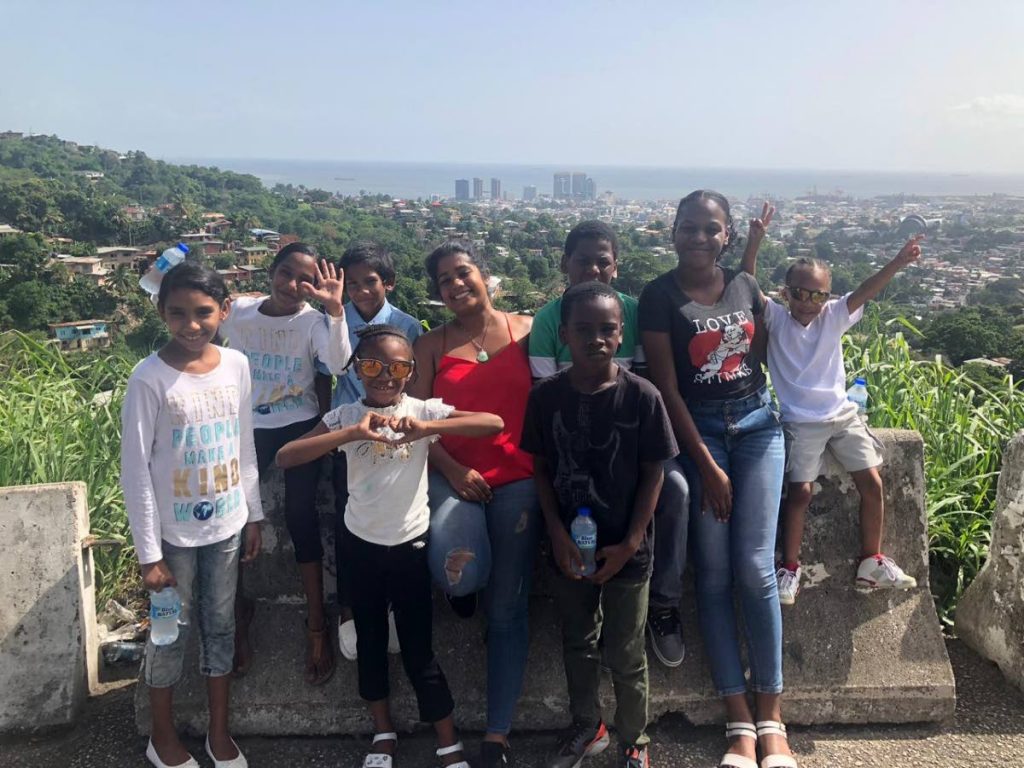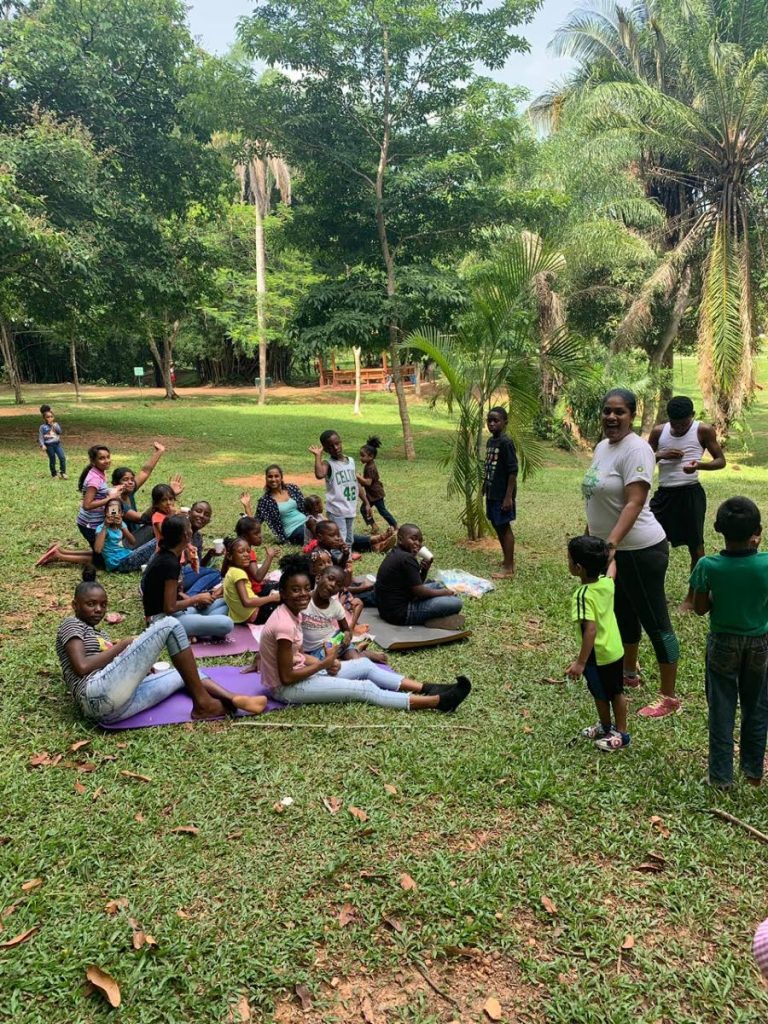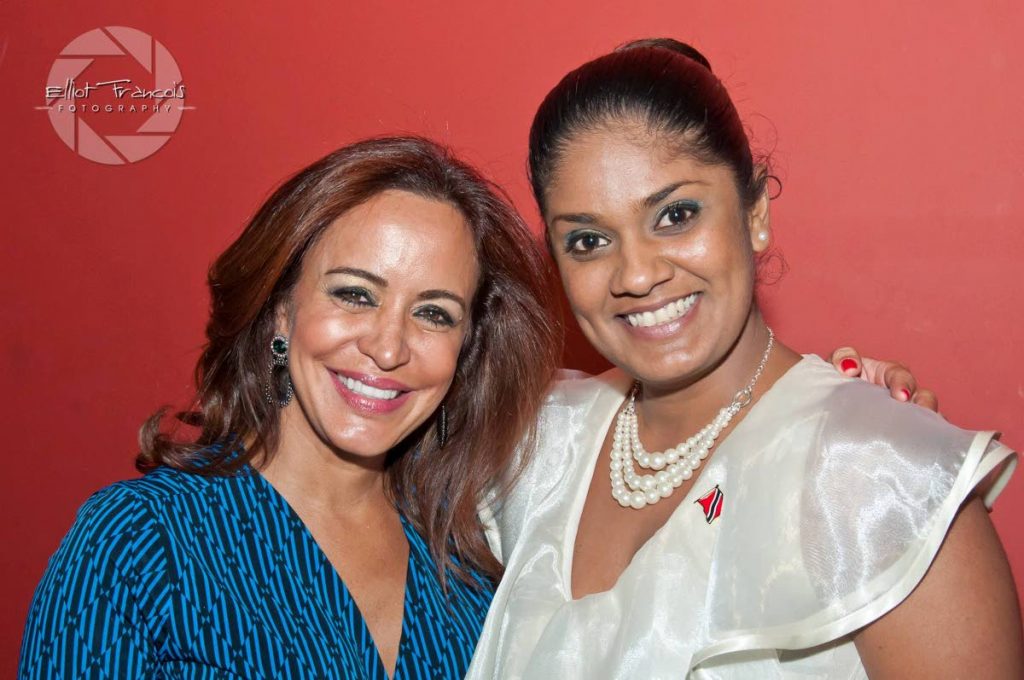The best of Beetham

When people talk about Beetham Gardens they do so in a negative way.
Social activist Priya Ganness-Nanton said she has heard people say horrible things like the area should be blown up or the water should be poisoned so that the area could get a fresh start.
She recalled asking people for donations for children of Beetham but they refused because they did not want to help anyone in the area. Others passed the Beetham every day and did not think about how they could help.
However, she said Beetham Gardens was a small place with a lot of great people who tried their best with what they had. “In these economic times all of us are struggling. Imagine trying to get a job when your address is in the Beetham! So their challenges are a little more than average. They have extra hurdles to cross.”

Ganness-Nanton first considered assisting the children of the area in 2013 when police killed a boy from the Beetham. Almost the whole community was devastated and came out to protest. She said the country in general was unmoved but, to her mind, gangsters died all the time and no one cared. So the fact that the community was so roused, she believed the boy was innocent.
She said the incident made her realise there was more to Beetham, that there was also good people there, not just gangsters, and decided she had to get involved. She gave the example of one boy who stayed back late in his primary school for weeks without extra money or food because he believed it would make him smarter.
“If you think they are monsters that’s what they are going to become. In going out there, being a part of the church and reaching out I came to the understanding that children can only learn what you teach them. They want to be and do more.”
She believed one sure way to reduce crime in underprivileged areas was to educate children so her cause was to keep the children in school and keep them fed. So she started becoming involved in June 2016, after the birth of her son Raiden in March, by attending the church, the Archbishop Anthony Pantin Chapel/Centre for Peace, and meeting the children.
She recalled that on Sunday mornings children could be seen running to attend church – some barefooted or bare-backed – because after mass, cake was served. She said one five-year-old girl would go to church in nice dresses but was unkempt. She found out that the child used to dress herself and leave the house for church alone because everyone else was asleep.
She learned children could cross the imaginary gang boarders but since they could not go out without adults, the children were usually stuck in the Beetham. “I thought that the reality was that children who grew up in these situations would be the bandits of tomorrow. That realisation that, if they are not given more opportunities, not shown other options because they hardly leave the area, that if they are not taught more than that, they would grow up to emulate what they see. They deserve more and can go further because they have more to prove.”
Ganness-Nanton told Sunday Newsday most of the 25 children on whom she focusses were members of the church. Originally there were 12 but then she saw other families struggling and trying their best to live good lives so they were included in her group.
Her first move was to provide school bags, stationary, and shoes for the children. With the help of the Sai Baba Centre and Chan’s Construction, 14 children benefited in September 2016. She decided to make it an annual drive and the following year, nine of the original 14 who were still in school and received supplies.
This year the women’s NGO Resilient Grace, of which she is an executive member, got involved. She said the drive was “huge” compared to the previous ones as the members of the NGO collected 40 school bags full of school supplies.
In 2016, she also coordinated a “kids gathering” in the yard at the National Foodcrop Farmers’ Association headquarters in Curepe with the Norris Deonarine Foundation where they planted crops, were treated to local stories and local fruits, and painted a mural.
In June 2017, she along with the church, took the children to Corpus Christi mass at the Queen’s Park Savannah, Port of Spain and they were very excited to leave the area. In July 2017, she collaborated with the Lloyd Best Institute in Tunapuna to have 15 children attend a two-week Artistic Expression Camp.
They later planted a poui tree at the Venezuelan Embassy for Independence Day, and attended a two-week Spanish and Cuatro Camp at the Venezuelan Embassy. She noted that they catered for 20 but 40 children attended and they all enjoyed it.

Her first annual food drive was for Christmas 2017. With the support of friends and co-workers, she gave food hampers to five families which included 30 children. In 2018 more of her friends got involved and hampers to were delivered to families with almost 50 children. She said she especially asked for things the children could make themselves without lighting a stove such as ramen, tin sausages, crix, and peanut butter.
“I will not ask any hardworking person to give me something to give to a family that is involved in drugs. My 25 kids, I know their parents, their parents know me, I know what they are involved in, about their jobs and their lives.”
She added that some of the children had friends and she would give them if she had extra hampers.
However, Ganness-Nanton said it was not just about giving the children things but giving them positive human contact and encouraging them to do well.
She said she saw them all the time because she organised outings like playground visits, pizza play dates, and sleepovers at her home. If one of the children got an A grade in test, they got to go for ice cream. When their baby teeth falls out, they get money – a tooth with cavity gets them five dollars, and one without a cavity is $20.
“I try to incorporate them into my life. They are not a project to me.”
She also encouraged her friends and co-workers to volunteer to spend time with the children. “It’s very emotional for me to see people come and bond with the children. It’s easy for people to give money and say, ‘Buy something for them or take them out.’ Now the women of Resilient Grace know them by name, they sat with them, we played with them, and got involved with the kids. Now the kids are excited to see their aunties. Personal relationships are what they need in their lives.”

Comments
"The best of Beetham"